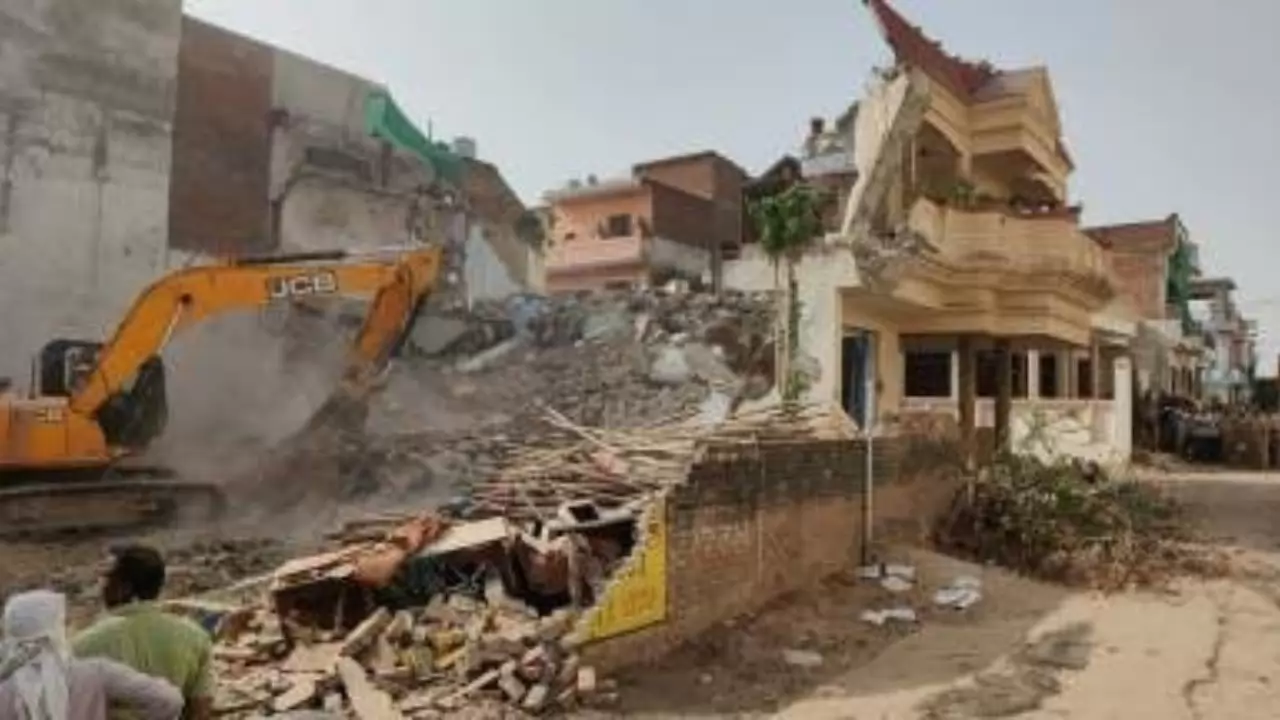
Bulldozer action (X/punny)
SC on Bulldozer Action: In a significant declaration, the Supreme Court has reaffirmed that India is a secular country and emphasized the need for equality in legal actions across religious lines. The apex court stated that illegal constructions, whether they are temples, dargahs, or other religious structures, will be treated the same under the law, regardless of religion.
During a hearing on illegal constructions, the Supreme Court underscored that civic order comes first and encroachments on public land, such as roads, footpaths, water bodies, or railway areas, cannot be justified under any religious pretext. The court made it clear that public nuisance caused by structures like temples, gurdwaras, or dargahs built on public spaces would not be tolerated.
The court's remarks came during a case where Solicitor General Tushar Mehta, representing Uttar Pradesh, Madhya Pradesh, and Rajasthan, was asked if a person's property could be demolished after being convicted of a crime. To this, the Solicitor General replied, "No, it should not be demolished, not even in cases of murder, rape, or terrorism."
The bench, led by Justice Gavai, reiterated the secular nature of the country and stated that guidelines would be issued for all citizens, regardless of their religious affiliations. “Anyone, whether Hindu or Muslim, can engage in illegal construction, but the law must apply equally to everyone,” said the court. The judges emphasized that action must be taken without religious bias and solely based on violations of municipal laws or town planning regulations.
Justice Gavai highlighted the importance of proper legal procedures in handling such cases. He stated that notices must be served to the parties involved, and these notices should be issued through registered post and properly documented. The court also called for the creation of digital records to ensure transparency and protect officials from undue allegations.
The Supreme Court assured that no property would be demolished solely based on an individual's criminal record. The legal basis for demolition must be rooted in violations of municipal regulations, not in unrelated criminal charges, such as rape or terrorism.
Addressing concerns about accusations of selective demolitions targeting minority communities, Solicitor General Tushar Mehta stated, “Such cases are rare, and account for only about 2 percent. The majority of cases involve builders and other issues unrelated to religious discrimination. Courts are always open to addressing these concerns.”
Justice Gavai concluded by reiterating, “We are a secular country, and our laws apply to everyone. Illegal constructions must be dealt with equally, without favoring any religion. Our order will be applicable across India, and we will ensure that it does not serve to protect encroachers.”
The Supreme Court’s forthcoming guidelines aim to ensure that illegal constructions are handled uniformly and fairly, irrespective of religious background, while maintaining transparency and due process in every case.





Copyright © 2026 Top Indian News
